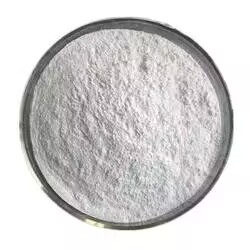gibberellins (GAs) is a kind of plant hormone which is essential for plant growth and development and has many physiological effects. The following are the main effects of gibberellin on plants:
Promote germination. Gibberellin can break the dormant period of plant seeds and promote seed germination, which is particularly important in anti-season planting in protected areas.
Promotes stem elongation. Gibberellin can stimulate cell elongation, thus promoting the growth of plant stems, making plants taller and increasing yield.
Promote leaf enlargement and delay senescence. Gibberellin can stimulate cell division, make leaves larger, delay cell senescence, thereby increasing the area of plants to receive sunlight and improving the efficiency of photosynthesis.
Prevent falling flowers and fruits. Gibberellin can promote male flower differentiation and parthenocarpus, and increase fruit setting rate, especially in plants that are easy to drop flowers and fruits.
Promotes cell division and elongation. Gibberellin can promote cell division and elongation without acidifying the cell wall.
Promotes seedless fruit formation. Gibberellin can also alter the sex ratio in some plants and promote the formation of seedless fruits.
Improve resilience. Gibberellin is involved in plant tolerance to a variety of abiotic stresses, such as low temperature, high salt, drought and hypertonic environmental stresses.
The effects of gibberellin are varied, and the effects on different plants and development stages may be different, but in general, it has an important impact on the growth and development of plants.
Post time: Mar-19-2024






